Meet the team
Nate Macabuag, Cofounder (MEng Mechancial Engineering 2018)
Ben Lakey, Cofounder (MRes Medical Device Design and Entrepreneurship 2018)
Get in touch
Our project
Across the globe, 70 million people suffer from limb-loss and its life altering consequences, which include physical limitations and psychological effects such as depression and isolation. Prosthetics can help limb loss patients regain some physical movement and participate in activities, which can reduce psychological impacts. Upper limb loss is often caused by trauma, which means the patients are younger and healthier than the average lower limb loss patient, so prostheses can be vital to maintaining their quality of life.
Current state-of-the-art prosthetics have a range of limitations that reduce their uptake in the market. Only 10% of limb-loss patients in the world have access to prostheses and a third of those who are given prostheses abandon such devices within 12 months due to the rigid sockets.
We have developed a revolutionary upper limb prosthesis that aims to address the limitations of artificial prosthetics. It consists of a flexible light sleeve which is comfortable, breathable and can be self-fitted in seconds without the need for clinicians and medical infrastructure. Alongside this it provides simple one-use tools that are inexpensive and interchangeable depending on the user’s needs.
Nate developed the technology at Imperial College London as part of his third-year Mechanical Engineering project. Soon after this he met Ben, who was studying Medical Device Design and Entrepreneurship at Imperial College, and the pair have been leading Mitt’s development ever since.
Support from Hackspace and the wider Imperial community
Mitt designs were born at the Hackspace. The 3D printers enabled Mitt to develop moulds for manufacturing, which reduced the cost and time required for making and prototyping tool designs. Whilst part of the Hackspace we met our chairman Nicholas Mellor, a social entrepreneur who has worked all around the world and who we see as an inspirational and valuable mentor.
We have a number of mentors who bring different expertise to the project. Through the Hackspace and Enterprise Lab we met Andy Carroll and David Griffiths and we also have Alex Lewis from Imperial’s Department of Mechanical Engineering as a mentor. Last year we were part of the London & Partners Business Growth Programme and through this we met with Gillian Kerr and Jon Kandiah. We also have Liz Coffey as a mentor who we met through Global Action on Poverty conference in India.
Mitt designs were born at the Hackspace. The 3D printers enabled Mitt to develop moulds for manufacturing, which reduced the cost and time required for making and prototyping tool designs.
Successes and learning
Our designs are driven by user-feedback so it was a huge achievement to receive amazing responses from the 10 person product trial that we launched in May. This confirmed our belief that we were nearing a product ready for beta launching. It was fantastic to see and hear what people were achieving on the trial with the prosthetics. Receiving the feedback through words, pictures and videos was so rewarding and everything else we do is working towards that.
Other successes include winning the Launchpad competition and an Enterprise Fellowship from the Royal Academy of Engineering last winter. This competition and grant has enabled us to keep working full time on Mitt before closing a pre-seed investment round.
One of the difficulties with working in this field is that the traditional prosthetics market is resistant to change. Our aim is to change the way in which NHS clinicians refer limb loss patients to prosthetic manufacturers so that rather than referring patients to specific clinics, they can advise them to purchase their own prostheses based on reviewing the Mitt website or sales brochures. Although this is a challenge we will continue to work directly with trial users and clinicians to ensure we can build the necessary confidence in the technology.
Our advice
Make time to get out of the lab and classroom to meet as many experienced entrepreneurs as you can. London is one of the best places in the world to start a company. The chances of getting your idea off the ground from the research stage and into an operating business will be so much greater if you surround yourself with experienced and ambitious people who connect with your vision. It can be intimidating to enter a room and start pitching your idea to strangers, but you have nothing to lose in giving it a try and seeing who is interested in joining you on your entrepreneurial journey.
Make time to get out of the lab and classroom to meet as many experienced entrepreneurs as you can. London is one of the best places in the world to start a company.

More from Hackspace
Discover what’s going on at the Hackspace.
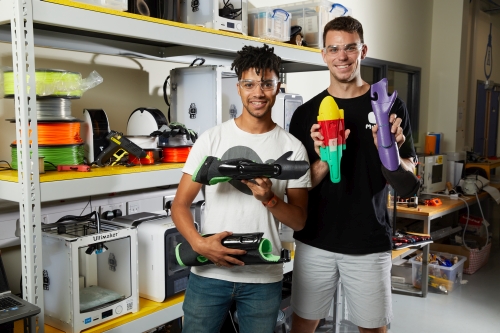
Read our success stories
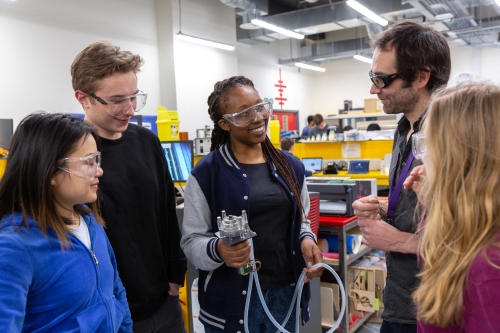
Work with us
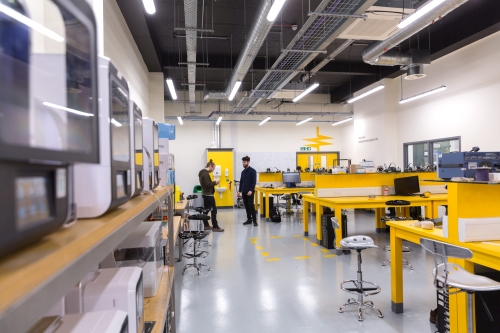
Our facilities
News
Catch up on the latest goings-on at Hackspace.
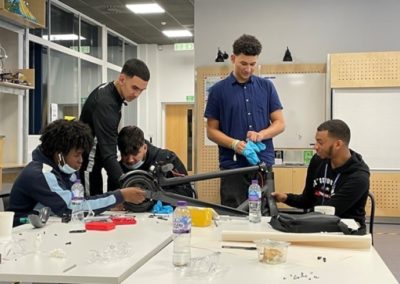
Imperial engineers work with local youth club to design and build e-scooters
Imperial has been working with North Paddington Youth Club to build electric scooters alongside the College's engineers.
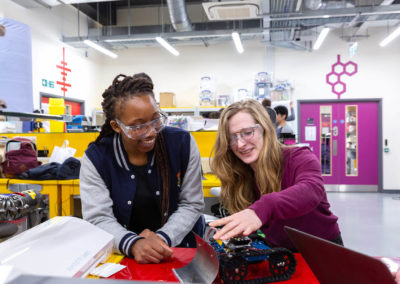
When Science and Art collide: White City Sculpture Challenge
The 2022 Sculpture Challenge will provide students the opportunity to collaborate and bring their vision to reality, resulting in the winning sculpture having a permanent presence at the White City Campus.
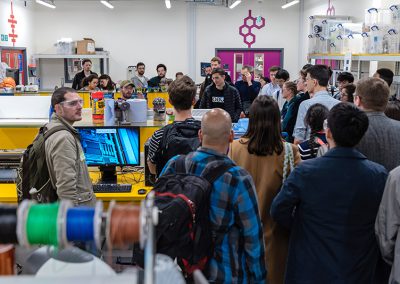
Hackstarter programme launches to support Imperial’s student makers and creators
Imperial College Advanced Hackspace launches Hackstarter to provide £500 prototype development grants.
© Copyright Advanced Hackspace | Powered by Imperial College London | Privacy Policy I Accessibility Statement | Website by Herd
